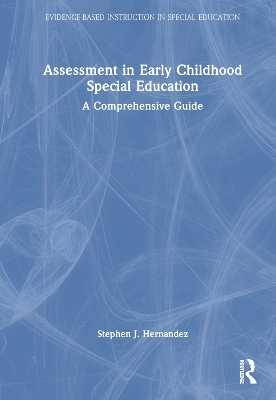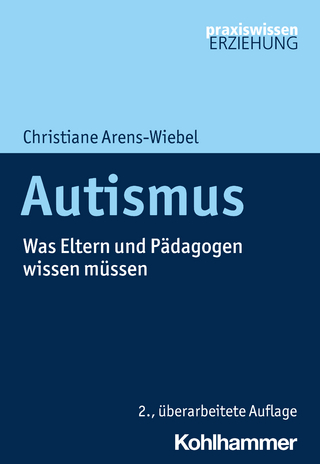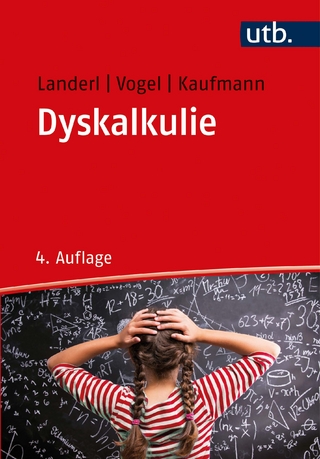
Assessment in Early Childhood Special Education
Routledge (Verlag)
978-1-032-89194-1 (ISBN)
- Lieferbar (Termin unbekannt)
- Versandkostenfrei innerhalb Deutschlands
- Auch auf Rechnung
- Verfügbarkeit in der Filiale vor Ort prüfen
- Artikel merken
This comprehensive guide to assessment in early childhood special education offers a macro- and micro-level understanding of the essential processes and activities relevant to the assessment of young children at risk of, or having, developmental delays or disabilities.
The book provides insights into the laws, regulations, processes, culturally and contextually relevant practices, and requirements that practitioners need to follow when engaged in assessment, in addition to an extensive overview of current and time-tested assessment tools designed for use by early childhood educators when evaluating young children with developmental challenges. It provides immediate guidance and support to a wide range of individuals engaged in service to young children who may have, or are already identified as having, a disability.
Assessment in Early Childhood Special Education is an essential text for pre-service early childhood special educators as well as current practitioners, including day care teachers (homebased and center-based), certified early childhood special educators, and general education kindergarten through second grade teachers. It should be on the desk of every early childhood educator who works with children who may be, or have been, identified as being at risk, developmentally delayed, or disabled.
Stephen J. Hernandez is an Associate Professor and the Director of Early Childhood at Hofstra University in Nassau County, New York, and regularly teaches graduate courses in the assessment of young children suspected of developmental delays or disabilities. Dr. Hernandez has served children and adults with special needs for over 45 years as a classroom teacher, school administrator, researcher, and professor.
Part One The What, Why, and How of Assessment 1. Assessment: What It Is, the Purpose, or Why Do We Do It, the Requirements, and How It Is Done 2. Legal, Regulatory, and Recommended Aspects of Assessment in Early Childhood Special Education 3. How Should Infants, Toddlers, and Young Children with Developmental Issues Be Assessed? 4. Test Measurement and Data Literacy Part Two Serving Through Assessment: How We Can Best Serve Children and Families When Going Through the Assessment Process? 5. Assessment, Program Planning, and Managing Change 6. Collaborative Partnerships in Assessment 7. Culturally Responsive Assessment Part Three Assessment Tools and Approaches 8. Types of Assessment Approaches in Early Childhood Special Education 9. Types of Assessment Tools in Early Childhood Special Education 10. Checklists, Rating Scales, and Rubrics for Formative and Summative Assessment 11. Performance-Based Assessment Strategies (Authentic Assessment) Part Four Assessment Tool Profiles and Reviews 12. Screening Tools 13. Standardized/Normed Referenced Tools 14. Criterion-Referenced Tools 15. Curriculum-Based Assessment Tools Conclusion
| Erscheinungsdatum | 18.10.2024 |
|---|---|
| Reihe/Serie | Evidence-Based Instruction in Special Education |
| Zusatzinfo | 3 Tables, black and white; 42 Line drawings, black and white; 7 Halftones, black and white; 49 Illustrations, black and white |
| Verlagsort | London |
| Sprache | englisch |
| Maße | 178 x 254 mm |
| Gewicht | 630 g |
| Themenwelt | Sozialwissenschaften ► Pädagogik ► Sonder-, Heil- und Förderpädagogik |
| Sozialwissenschaften ► Pädagogik ► Vorschulpädagogik | |
| ISBN-10 | 1-032-89194-7 / 1032891947 |
| ISBN-13 | 978-1-032-89194-1 / 9781032891941 |
| Zustand | Neuware |
| Informationen gemäß Produktsicherheitsverordnung (GPSR) | |
| Haben Sie eine Frage zum Produkt? |
aus dem Bereich


